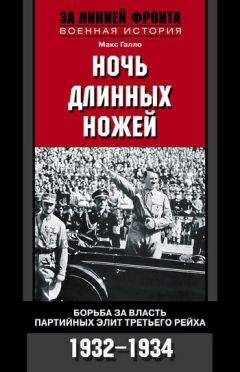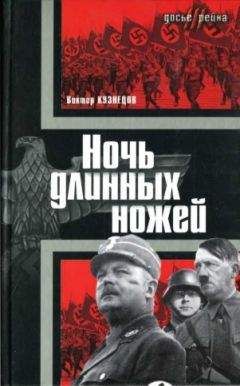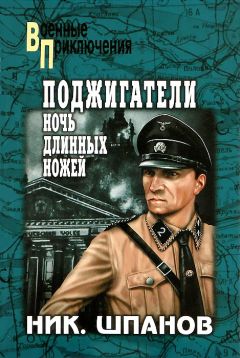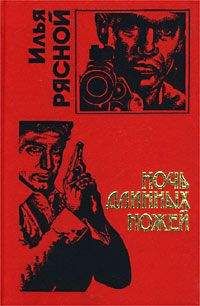Michael Dibdin - Dark Specter
Joe Quinlan broke into a broad smile.
“Hell, Jim, since you put it like that …”
They drove the two blocks to the waterfront in one of the motor pool trucks which the Fire Department shared with other county officials, then strolled down the wooden walkway past the sheriff’s spanking-new speedboat to a battered red vessel marked FIRE-RESCUE. It was almost thirty years old and could make eight knots, flat out.
“So who reported this?” Quinlan asked as they chugged out of the harbor into the San Juan channel.
Ed Boyle gave the wheel a wrench to starboard.
“You know Bert Rigby over at Eastsound on Orcas?”
McTafferty laughed.
“He and Kathy Monroe still a number, or did she wear him all out? Now there’s one spunky babe. She’s been through half the men on Orcas since she got her divorce squared away”
“Probably looking for a meal ticket,” said Quinlan. “Knowing Gregg Monroe, she’ll never see dime one.”
“Perry Fletcher told me Bert’s already got a couple by-blow kids somewheres on the mainland. Someone should buy him a pack of Trojans.”
Ed Boyle pushed the throttle up to full revs.
“Anyway, Bert was up on the Turtleback with his gun and spotted smoke on Sleight,” Boyle continued. “Called in when he got back home. ‘Thought you should know,’ he says. ‘But to be honest, them hippies burn themselves out, it’ll be the best news since we won the Pig War.’”
Quinlan smiled sardonically. Off-islanders were never more than tolerated by the locals, although most of them were pleasant enough folks: boat-butts, retired military personnel, convalescent oldsters, a reclusive millionaire or two. The only real pains were the tree-huggers, granolas in Birkenstocks who’d moved out there from the cities to have a meaningful relationship with nature. They were constantly banging on about stuff the islanders had been doing since Christ was a corporal, like burning off the stubble and dumping their sewage in the ocean. Joe couldn’t see it made a damn bit of difference, the tonnage of raw shit the Canadians pumped into their side of the straits every day.
But at least the eco-nuts lived in regular houses, paid their taxes, sent their kids to school and supported local businesses. A few of them even had jobs. The people out on Sleight were different. Always had been. There was something about that island seemed to attract weirdos. When the first-growth was logged, back in the last century, one of the crew had gone crazy and killed two others with an axe while they slept. Then some kind of religious cranks had set up there, Quinlan could never remember the name, Theo and Sophy came into it. They were there for years, and when that brand of voodoo finally went out of style a bunch of goddamn hippies moved in. It was enough to make you believe the story someone had told him, that the Indians used to avoid the island because it was inhabited by bad spirits.
The boat shoved its ungainly way through the water shimmering in the last faint rays of the vanished sun. Ed Boyle consulted his watch.
“Well, the seminar should be under way by now Wonder if they’re in the hot tub yet.”
At last they cleared the cluster of islets at the southwestern tip of Orcas, and Sleight Island finally came into view, a dark mass hunkered down on the shifting waters. There was no sign of any fire.
“Shee-it!” breathed McTafferty.
“Looks like we might have to start something ourselves,” said Ed Boyle.
Joe Quinlan sighed.
“I knew I shouldn’t have let you boys talk me into this. It looks like we ditched out on purpose, the Chief’ll go ballistic.”
“Bert wouldn’t kid us about something like this,” said Boyle. “Maybe she just burned herself out.”
He switched on the searchlight mounted on the cabin roof, illuminating the coastline and the wooden pier.
“No sign of their boat,” McTafferty remarked.
Ed Boyle throttled back to bring the launch alongside, while Quinlan and McTafferty went out on deck to get the mooring ropes ready. Then there was a jarring crunch, and the launch stopped dead, hurling Quinlan painfully against a winch.
“What the fuck?”
McTafferty got up from the deck, rubbing his thigh. He looked overboard.
“Something down there.”
They backed off and angled the searchlight down into the water. All three men gathered at the bow.
“Jesus!” said Quinlan.
In the depths alongside the pier lay a submerged boat. Taut mooring ropes secured it to the pier, which was leaning over at an angle under the weight. On the blue hull of the wreck, white lettering spelled the word POLICE.
“Where the hell’s that from?” asked McTafferty.
Ed Boyle brought the launch in on the other side of the pier, and they all went ashore. The bulk of the island rose massive and black behind them. There was no sound, no light, no trace of human presence.
“Guess we should go see what’s cooking,” said McTafferty.
“Guess so,” said Boyle.
Neither man moved.
“You guys get on the radio,” said Joe Quinlan. “Find out if the cops have been here. I’ll go check it out.”
McTafferty walked a ways along the pier with him.
“If you’re not back here in ten minutes, Joe, we’ll …”
He broke off, catching sight of the body. It was lying on its back in the dirt at the landward end of the pier, the arms and legs stretched wide.
“Christ almighty.”
“Give us some light here!” Quinlan yelled to Boyle.
The searchlight moved jerkily up and across. Quinlan approached the body, processing information as he drew nearer. A man. In his thirties. Blond hair. Beard. Work boots. Jeans. Blue flannel shirt with a large red stain. No pulse. Skin cold. Been dead some time.
He glanced up instinctively at the screen of trees all around, the tips barely etched in against the night sky.
“Kill the light!” he shouted.
The searchlight went out, leaving him blind for a moment. He groped his way back to McTafferty.
“Well, we don’t have to worry about skipping that seminar,” he said.
“Is he …?”
“Yeah. Get the sheriff out here.”
Darrell Griffiths was a massive man with flinty eyes, a bushy mustache, an impressive gut and a permanently morose expression. He had owned the islands’ only drugstore for years, but when his oldest daughter graduated from pharmacy school at the university he turned it over to her and ran for sheriff. Since then, Darrell had supervised whatever law enforcement the county needed-not a whole heck of a lot, to be honest-as well as raising the four younger children his wife had dumped on him when she ran off to Spokane with some guy from the mainland. It had been the talk of the town for months, but Darrell had never said one solitary word about the whole business, and he wasn’t the kind of guy you could ask.
The fire launch was lying at anchor about half a mile off Sleight. It was the first time they’d had the hook down as long as anyone could remember, but the damn thing worked perfectly, showed the maintenance program must be OK. The sheriff’s boat came alongside, and Griffiths and his two deputies went aboard the launch to confer with the firemen. After a brief conference, the two vessels continued to the pier, where they tied up side by side.
The six men walked down the pier and surrounded the body.
“Anyone recognize him?” asked Griffiths.
Pete Green, one of the deputies, spat mellifluously into the undergrowth.
“One of the guys that lives out here,” he said. “Time I came over last year he met me right here, we talked. Not that bad a guy …”
“…for a hippy,” the others all concluded silently.
Griffiths recalled the occasion. The police had been called by a group of rich yuppies from Boston who were spending a couple of weeks in the islands, cruising around in a fancy yacht they’d chartered. They’d dropped anchor off Sleight and gone ashore in a dinghy to have a picnic. Next thing they know, these guys are standing around them with guns, telling them the island’s private property and they got sixty seconds to get their butts off it. The hippies were within their rights, of course, and the sheriff didn’t have a whole hell of a lot of sympathy for easterners anyway, but he’d sent Pete over to have a word with them, suggest maybe next time they could tone down the attitude some.
Joe Quinlan knelt down and inspected the massive entry wound in the chest.
“Looks like a high-velocity rifle,” he announced to no one in particular.
Quinlan had been in the war, and was the only one of them to have much experience with gunshot wounds. Lorne Fowler, the other deputy, voiced the question that was on all their minds.
“Think whoever done it is still up there someplace?”
The sheriff sniffed loudly.
“Bring me the bullhorn, Pete.”
Pete Green brought the megaphone from the boat. Griffiths switched it on.
“This is the sheriff speaking. If any of you are armed, lay down your weapons and come out with your hands on your heads. I’ve got five men with me and we’re coming in now.”
He drew his revolver and started up the trail. The others followed. The dusk was gathering rapidly now. The woods on either side were already in darkness. The six men walked quietly, at an even pace, without speaking. A startled bird flew off into the woods with a rapid squawking. Something scuttled away in the shrubbery. The moon had risen, a perfect white crescent cut as though with a razor out of the blackboard of the sky.
As they turned the final bend of the trail and came in view of the clearing, they all stopped. The camphouse, the only building of any size on the island, had completely disappeared. In its place lay a heap of charred timber and ashes from which a flaccid plume of smoke rose into the evening air. Some of the undergrowth on the far side of the clearing was smoldering quietly, but a more serious conflagration had been avoided, thanks to the absence of wind. There was no one in sight, and no sound other than a creaking and settling from the burned-out timbers.
“Jesus,” said Griffiths quietly.
He led the way across the open ground between the trail and the ruins of the hall. The silvery veil of moonlight made everything look unreal. Then they all heard the noise, and stopped again. It seemed to be coming from the piled ashes and debris, a kind of moaning sound. It had a human edge, like the wail of a baby you can’t ignore. The men looked at each other, none of them wanting to be the first to admit what they were all thinking.
At first they were almost relieved when the other noise cut loose, loud and insistent, mechanical, masculine. Its clamor chopped up the silence into orderly segments, and proved its reality by chipping timber off the trees with vicious slashes. By the time they realized what it was and had thrown themselves to the ground, it was over. They lay panting, retrospectively terrified.
For a long while, no one spoke. They all knew that if the gunman had aimed a little lower, they would now be dead. They also knew that unless he had aimed high on purpose, they would soon be dead anyway. The guy had some kind of rapid-fire weapon, a machine-gun or assault rifle. Returning fire would only draw attention to their position, and in any case they had no idea where the shots had come from.
“Pete?” said Griffiths eventually.
“Yeah?”
“You have your radio?”
“Nope.”
“Lorne?”
“Didn’t think we’d need it.”
There was another silence.
“OK, I’m going to try and make it back to the boat,” Griffiths said. “You guys cover me.”
He crawled backward through the scrub and rocks, high enough to make progress difficult but too low to give a man any serious cover. Hearing a sound behind him, he whirled over on his back, revolver pointed.
“It’s me,” said Joe Quinlan.
“Jesus, almost blew you away!”
“Two of us should go. That way one of us might make it.”
“I don’t believe this,” muttered the sheriff.
“It don’t need you to believe it,” Quinlan replied.
They had almost reached the woods when Griffiths stumbled on something. Another body, a guy in his forties this time, short but solidly built. He had a blond mustache and a ponytail and that was about all you could tell, because the whole back of his head wasn’t there.
“Ah, fuck it,” said Quinlan.
He stood up.
“Get down!” yelled Griffiths.
Joe Quinlan kept on walking. The sheriff wasn’t his boss. When he reached the trees, he started to run, dodging and weaving, feeling a thrill he hadn’t experienced for years, not since he was a boy playing war games up at English Camp with the Whitney kids and Lorne Fowler. It was fun! He tore through the woods, emerging on the trail about twenty yards from the pier. Only then did it occur to him that this wasn’t a game.
He backed into the trees again and worked his way down beside the path. He could see the pier now, the two boats riding at their moorings and the dead man. If this had been a trap, these were the jaws. He stayed there for a full five minutes by his watch. There had been no further firing back in the clearing. Then he stepped out on to the trail and strolled down to the pier. There was no point in hurrying. If there was anyone up there in the trees, they’d get him anyway.
He climbed over the police boat into the fire launch moored alongside. Sheriff had some kind of smart radio he wouldn’t know how to operate. Quinlan switched on the set and sent out an “Officer Down” call, adding that they’d found two bodies and were under fire. No one had actually been hit, but he wanted armed backup, and he wanted it now. If these guys were going to play hardball, let them play the pros.
Thirty minutes later, Sleight Island was thick with cops. State troopers, a SWAT team from Seattle, units from Skagit County and Bellingham, even a squad of MPs from the Navy airbase at Oak Harbor. A helicopter hovered overhead, pouring a cone of brilliant light down on to the clearing.
In the meantime, Pete and Lorne, the two deputies, had split up and circled around the remains of the hall to see what they could find. Joe Quinlan was about to offer to join them when he realized that would be uncool. He’d already upstaged the cops by volunteering to go to the boat and call HQ. He hadn’t even been thinking, but they had. He was in Vietnam, they thought. He figures he’s the hot-shit jungle warrior and we’re just a couple of farm boys.
Actually, nothing had been further from Quinlan’s mind. He hadn’t been trying to make anyone look bad, he’d just done what felt good. But he could see it from their point of view, and sat tight while they loped off through the bush with their.38s drawn, wagging their tails around like they were playing flag football. Quinlan prayed to God some guy out there wouldn’t blow their well-meaning asses over Orcas before they even figured out what they were doing wrong.




